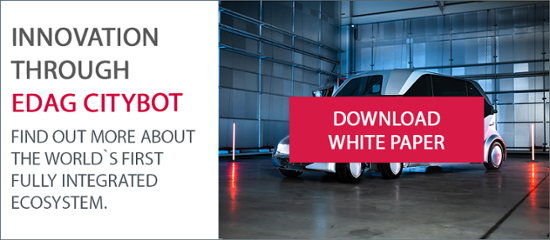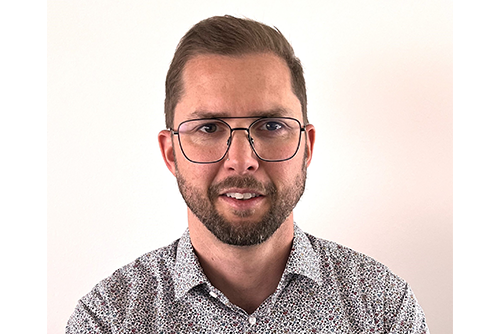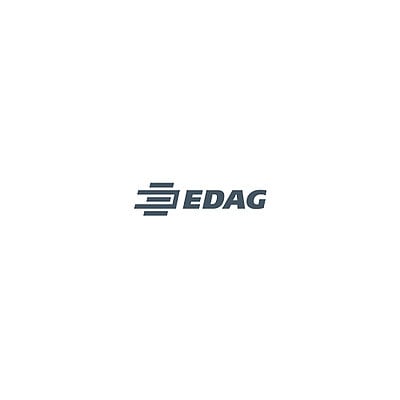Not again! Traffic jam. Something you can practically set your watch by in the morning rush hour. So the conclusion that we need to completely rethink our cities, traffic and mobility comes as no real surprise. In 2030, more than 78 percent of the population will live in cities. If individual transport continues to increase, this complete traffic gridlock scenario will become unavoidable. This is where the CityBot concept comes in. 100 CityBots for every 1,000 inhabitants could fully cover all inner city mobility and service requirements.
EDAG CityBots are not just highly automated, multi-functional vehicles that drive without emissions. Their modularity and multi-functionality mean that they can be operated around the clock and put to a wide variety of uses to meet requirements: as a passenger cell for instance, or a cargo carrier or device for city cleaning, waste disposal or park maintenance. At the same time, the EDAG CityBot is also opening the door for completely new business models. Not only are the functions of the EDAG CityBot fleet intelligently controlled, they can also be billed in real time using integrated payment systems. Payback for operators is therefore already incorporated from the outset – and it is this all-round concept which makes EDAG CityBots game changers, opening up completely new prospects for operators and users alike.
A revolutionary idea put into practice
At this point, you could say " a good idea – in theory ...". It will definitely catch the eye at an exhibition or in a showroom. But in practice? What started as a showcase of a complete ecosysstem at the IAA in 2019 has since passed through an extensive learning and maturity process. In cooperation with partners from other companies, science and research, EDAG has in the meantime substantially advanced the vehicle technology, software and networking behind it, while at the same time taking the next step – the gradual integration of EDAG CityBots into the daily operations of (semi-) public organizations, institutions and companies under real lab conditions.
A key role here has been and is still being played by the Campus FreeCity project in the Deutsche Bank Park, the area around the Eintracht Frankfurt stadium. In cooperation with Eintracht Tech - the digital subsidiary of Eintracht Frankfurt - and other partners, EDAG has been testing various service functions of the EDAG CityBots under real lab conditions.

The commissioning of the real-world laboratory in Frankfurt has attracted a great deal of public and media interest. The science program "Galileo" recently accompanied the EDAG CityBots on their test drives on the stadium grounds. In addition, numerous print, radio and TV journalists were given an insight into the Operation Center as well as a live demonstration of the various use cases as part of an official press day. In addition to various specialist media, local and national TV and radio stations as well as well-known print media, including Frankfurter Allgemeine Zeitung, ZEIT Online, Stern and BILD-Zeitung, reported on the event.
From stadium to airport
The stadium grounds provided a wide range of business use cases, ranging from passenger services, logistics and the transport of goods to practical tasks such as playing field and park maintenance, and keeping footpaths clean. Throughout the project, developers and those involved in the project treated the real lab in the Deutsche Bank Park as a simplified, small-scale model of an inner city or operating area, and created the experimental set-ups accordingly. 
Finally, the extensive practical studies in which the robot fleet were required to interact with complex ambient conditions, in particular with humans, showed that there are no limits to the possible uses the EDAG CityBots can be put to in the future. A technology that proves effective in live tests under stadium conditions is open to many other possible applications and can be adapted for a wide variety of vehicle types. At airports or container terminals, for example, or in the agricultural sector.
So that such options are not just explored but, on the basis of existing developments, also implemented as quickly as possible, EDAG brings in interested producers - manufacturers of special-purpose vehicles for instance - at the earliest possible date. This enables a detailed understanding of the specific requirements for operational use to be gained and tailor-made solutions to be developed together.

At airports, for example, EDAG CityBots can be used to transport material, flight staff and VIPs. They are also suitable for automated runway cleaning and the maintenance of the surrounding grassed areas. Statutory beacon monitoring, which is otherwise extremely time and labor-intensive, can also be handled automatically by EDAG CityBots with the appropriate sensor technology and system access. While doing this job, the service robots can also carry out the security monitoring of the fences surrounding the airport as they are driving past. All this can help airport operators to achieve considerable savings in ongoing operating costs, in the provision of special-purpose vehicles and in ground support staffing capacities.
Thinking out the big picture
This extensive range of EDAG CityBot applications is the result of and particular strength of EDAG's 360-degree engineering. It builds on the triad of vehicle technology, software & digitalization and marketability. The integration of emission-free, automated transport and service functions can only be successful if the people who are to use and benefit from them are involved in the dialog from the very outset. This is the only way in which doubts and misgivings concerning automation, robot technology, AI-assisted user data processing can be detected in good time and ideally systematically broken down.
Ready for the next level
The learning effect for everyone involved: The EDAG CityBot concept works and on completion of the Campus FreeCity project will be ready for new tasks. Embedded and integrated in a complex ecosystem, sustainability and profitable 24/7/365 services are increasingly being focused on by operators and users. The fact that the EDAG CityBot is not simply a high-profile eye-catcher, but also capable of being adapted for completely new business models makes it a "win-win" concept for everybody. The way has been paved. In the next stage, the important thing will be to gather experience in wide-scale fleet operation in a number of different fields. Goodbye congestion, smog and immobility … an idea it would be easy to get used to. The sooner the better.
In the context of the CityBot, EDAG offers a complete system solution that impements automated and networked driving in a defined operational design domain (ODD): Airports, depots, industrial plants, factories, logistics centers, cities. It includes an operation center with booking system, administration and teleoperated driving.
Further information and downloads
If you would like more detailed information on the EDAG CityBot, the real labs and business models already in the system, then contact Thomas Ketterle, Key Account Manager EDAG Group. Or the EDAG CityBot's "inventor" and product owner Johannes Barckmann, Head of Global Fairs + Show Cars, Global Design Manager - Group Marketing.
All other details and many other possible applications can be found in our EDAG CityBot white paper. 





